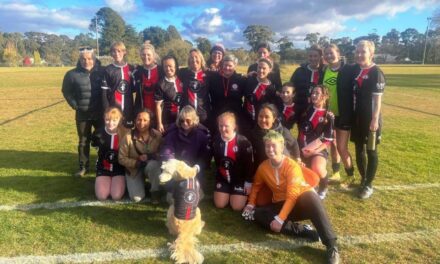On Tuesday, Coroner Dimitra Dubrow held a directions hearing in Melbourne to set the timetable for an upcoming inquest into the fatal Daylesford crash of 5 November 2023, when a diabetic driver’s BMW SUV ploughed into patrons outside the Royal Daylesford Hotel, killing five people—including two children.
In the evening of that tragic November day, driver William Herbert Swale, a long‑time type‑1 diabetic, is alleged to have suffered a severe hypoglycaemic “hypo” episode, causing him to lose consciousness or awareness while driving. Within minutes, he mounted a kerb and crashed into diners at picnic tables on the beer garden lawn, killing Pratibha Sharma (44), her daughter Anvi (9), her partner Jatin Kumar (30), and Vivek Bhatia (38) with his son Vihaan (11).
A 2024 committal hearing in Ballarat Magistrates’ Court saw the charges—five counts of culpable driving causing death, plus counts of serious injury and endangering life—discharged by Magistrate Guillaume Bailin due to insufficient evidence that Swale had acted consciously at the time. Expert medical testimony established he was in a non‑voluntary state during the incident.
As a directions hearing, the court did not hear evidence. Instead, Coroner Dubrow confirmed that the formal inquest will begin on 10 March 2026 and run for approximately two weeks.
The purpose of this coronial inquiry is not to assign criminal blame, but to establish facts and recommend measures to help prevent future tragedies. Among the key issues likely to be examined:
- Medical and diabetes‑management protocols: What was known about Swale’s hypoglycaemia risk and whether he had warning systems in place.
- Driving fitness rules for insulin‑dependent diabetics: How glucose monitoring, alerts, and VicRoads regulations intersected.
- Risk communication and compliance: Did Swale receive and then ignore multiple app alerts of dangerously low blood‑glucose levels in the hour leading to the crash? Do such systems require improvements?
- Public safety arrangements at outdoor hospitality venues: Was seating outside the hotel appropriate or poorly protected?
- Evidence gaps: What new testimony from bystanders, medical experts, crash investigators, venue operators, or other witnesses will shed light on events?
Over the coming months, Counsel Assisting the Coroner will gather statements from more than 60 witnesses including police, paramedics, medical experts, and bystanders.
The inquest’s findings may propose broader recommendations: improved diabetic driving standards, strengthened visibility alerts in vehicles or health apps, and broader public safety protocols for pubs and dining venues.
The Coroners Court seeks to find the lessons that can be learned from the tragedy and make policy and public safety recommendations to minimise the risk of a recurrence.
In the meantime, Hepburn Shire Council taken remedial actions to prevent a possible recurrence. Large boulders have been installed at the Albert Street side of the parkland adjacent to the Royal Hotel. In cooperation with the Department of Transport, Council has reduced speed limits in the township.
Council is also considering road treatment options for the Albert St/ Vincent St intersection and will apply for funding under the federal Blackspot program. Community consultation is currently underway on the Participate Hepburn website for the treatment options that Council is considering.
These actions have been taken in advance of any outcomes of the Coroners inquiry. At the time of the accident, then Mayor, Cr Brian Hood gave assurances that Council would comply with any safety recommendations arising from an investigation of the accident.





